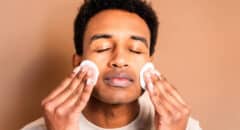
Psoriasis – known for it’s red, scaly patches on the skin – is one of the most common autoimmune diseases and although African Americans are less likely to get it, when we do get it, it’s often more severe and causes more psychological effects. There’s no cure for psoriasis, but thankfully, most people see improvements during the spring and summer. The increased humidity and time in the sun is a natural prescription for the skin, but the warmer months can also introduce some special challenges for managing your psoriasis. Enjoy your summer and avoid triggering a flare-up by following the tips below.
1. Always use sunscreen.
Getting even mild sunburn can increase your risk of a psoriasis flare-up and new plaques forming. Dermatologists recommend using a broad spectrum sunscreen that protects from both UVA and UVB rays. Use fragrant-free sunscreens, as fragrances can irritate your skin.
2. Go swimming.
Swimming can be good for your skin; it’s all about WHERE you swim. If you’re vacationing near the sea, the salt water can help remove dead skin. The chlorine in regular pool water and make your skin drier and cause a flare-up, but if you do take a dip in the pool, be sure to shower afterwards and pat yourself dry with a towel (instead of rubbing).
SIGN UP FOR OUR NEWSLETTER HERE!
3. Monitor your time in the sun.
In most cases, sun helps reduce inflammation but it’s important to know that some medications used to treat psoriasis can make the skin more sensitive to the sun. Talk with your doctor about how much exposure is right for you and your treatment plan. Increase your time in the sun gradually if allowed.
4. Limit alcohol.
Studies show that heavy drinking can trigger psoriasis and possibly make treatments less effective.
5. Use moisturizer.
If you spend extended amounts of time under air conditioning (home, office, public transportation), use moisturizer daily to keep the skin soft. AC can strip the skin of its natural moisture, causing a flare-up.
6. Stay cool.
Sweat can irritate your skin, making your psoriasis worse. Dampen a clean washcloth in cool water and gently wipe away sweat from your skin (especially your face) to stay cool and dry.
7. Avoid cuts and scrapes.
Trauma to the skin, like cuts and even bug bites, can cause new psoriasis lesions to form. If you’re using bug repellent on your skin to protect yourself from insects, use one with a low percentage of DEET, the main active ingredient in most insect repellents.
Visit the BlackDoctor.org Psoriasis center for more articles and tips.








